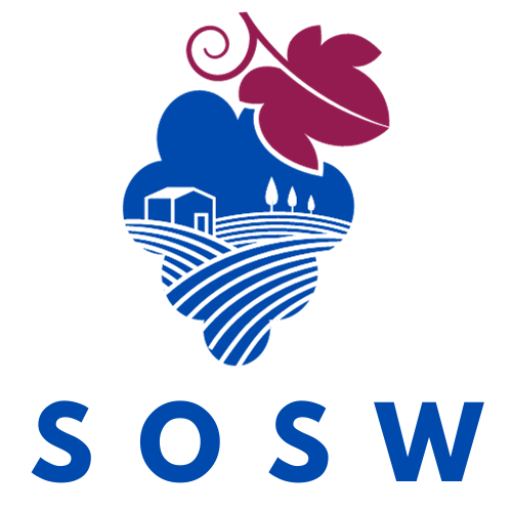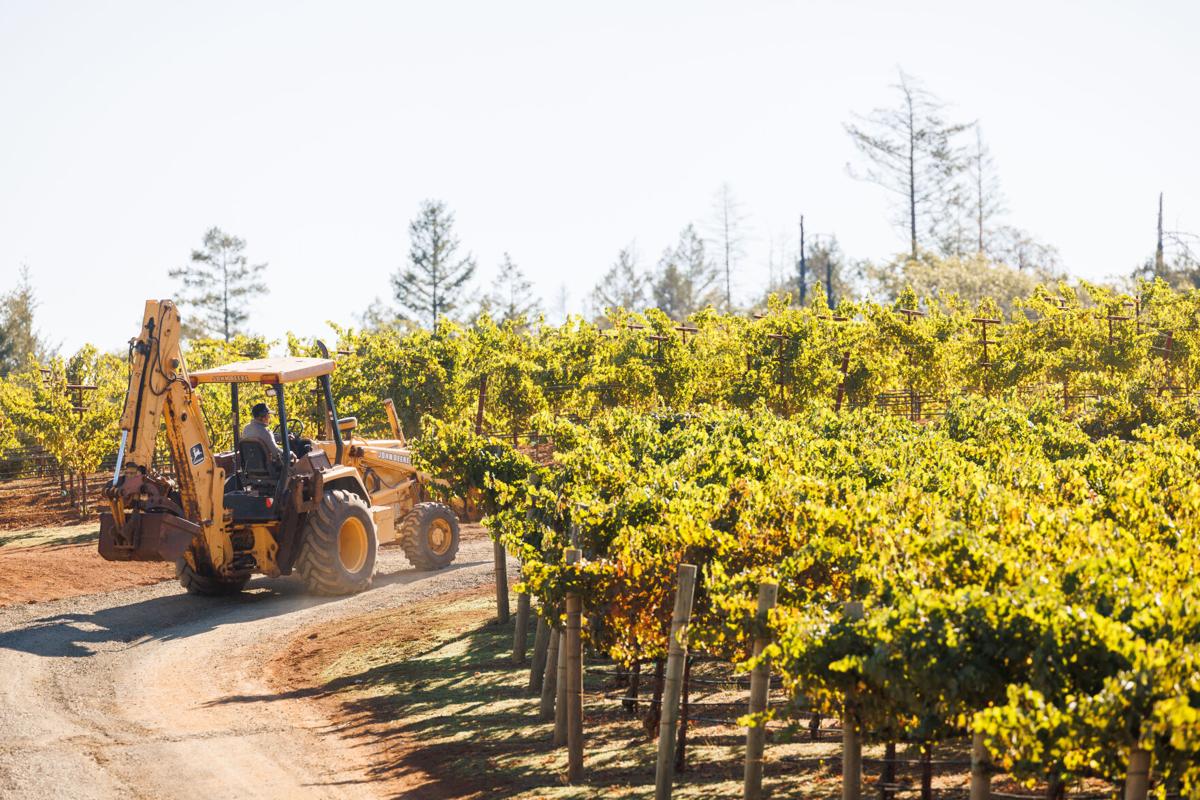Barry Eberling | Napa Valley Register |
A legal battle over whether the Hoopes Vineyard winery or Napa County has gone rogue in interpreting county regulations — and whether some of those rules are unconstitutional — has taken new turns.
Hoopes winery says the county discriminates against specific classes of small businesses and landowners. It announced Wednesday it is seeking investigations from Ismail Ramsey, U.S. attorney general for the Northern District of California, and state Attorney General Rob Bonta.
Joining Hoopes winery in making the request are the Smith-Madrone and Summit Lake wineries. They say the county tries to force some wineries to seek county permission for wine tasting visitation rights they already possess.
Hoopes, Smith-Madrone and Summit Lake wineries were established before the county’s 1990 winery definition ordinance. Their owners say they are concerned about what rules apply to pre-1990 small wineries.
“We are asking for help to protect us from this government overreach,” said vintner Lindsay Hoopes, who previously worked for the San Francisco district attorney’s office.
Napa County’s standard practice is to avoid commenting on ongoing or potential litigation, county spokesperson Linda Ong said.
Meanwhile, Napa County and Hoopes winery continue a year-long battle in Napa County Superior Court that has seen a switch in judges. That came after the county learned that the husband of Superior Court Judge Cynthia Smith works for another county winery regulations nemesis.
All of this is part of a legal skirmish that may — or may not — have implications for other small wineries established before Napa County’s landmark 1990 ordinance.
The court case
Napa County regulates wineries. In most cases, it issues use permits that stipulate how much wine production and how many visitors each winery can have annually.
Hoopes winery was established as the Hopper Creek winery in 1984 by a previous owner under the county’s now-defunct small winery exemption program. The county says that, in exchange for streamlined approval, these applicants agreed to such conditions as holding no tours, tastings or social events of a public nature.
In the fall of 2022, the county filed a lawsuit in Napa County Superior Court alleging Hoopes winery is breaking the rules.
Hoopes illegally hosts tours and tastings and holds various events at its location at 6204 Washington St. south of Yountville, the lawsuit said. Other alleged, unlawful uses include holding yoga classes, having an animal sanctuary, having a two-piece connected shed without a building permit and providing food services.
County officials say that wineries with small winery exemptions must apply for use permits to host tours and tastings. That involves such steps as going through a county Planning Commission hearing and can trigger requirements such as making road improvements.
The county’s lawsuit talked of protecting the county’s agricultural preserve, which sets aside most rural land outside of cities for farming.
“Because commercial uses and services are directly at odds with this agricultural purpose, permissible land use in the agricultural preserve district, even at Napa County’s most famous wineries, are quite limited and are carefully spelled out in the county’s zoning code,” the lawsuit said.
Hoopes winery responded with a counter-complaint.
“At the heart of the controversy is whether Napa County can render valueless a lawful, operating business — a winery — from doing what a winery does through arbitrary, vague and unintelligible rules, leaving no room for compliance,” the suit said.
The Hoopes family bought the former Hopper Creek winery in 2017. The small winery exemption allows for the selling of wine from the winery. County officials told Hoopes that the winery can provide samples to encourage purchase, but not charge for the tastings, the Hoopes suit said.
“Hoopes owned vineyards in Napa, but needed a winery to make direct-to-consumer sales to make its business sustainable. … Hoopes searched for an entitled property so it could lawfully make direct sales,” the suit said.
A jury is to decide whether or not Hoopes is following the rules.
Smith-Madrone and Summit Lake
Smith-Madrone and Summit Lake wineries this summer announced they want to join the legal case on the Hoopes side, saying they face similar issues with the county. The two wineries explained why to Napa County Court Judge Cynthia Smith on Oct. 6.
But at that hearing, Smith — who has no connection to Smith-Madrone winery — said something that caught the attention of the county’s attorneys. She disclosed that her husband works for Hundred Acre Wine Group.
Hundred Acre Wine Group is owned by Jayson Woodbridge. Woodbridge has two court cases filed against the county, one over county well regulations and the other involving an experimental vineyard that the county says is illegal.
Given that, Napa County asked that Smith be disqualified from the case.
On Oct. 24, Smith recused herself. She can be fair and impartial in the Hoopes case, but someone who knows the facts might reasonably entertain a doubt, she wrote.
Judge Scott Young took over the case, but the Hoopes team challenged whether he can be impartial to them. Judge Joseph Solga took over the case, but the county team challenged his impartiality as well.
As of Wednesday, Judge Mark Boessenecker was to oversee the trial. He is to hold a Nov. 20 hearing on whether Smith-Madrone and Summit Lake wineries can join the Hoopes case.
Smith-Madrone winery has a 1973 use permit. There’s no dispute that the winery can have visitors.
But Stuart Smith of Smith-Madrone winery told the Napa Valley Register that he looked at a county online database and saw his winery was limited to 10 visitors a week and no marketing events. That was news to him.
He filed papers with the court contending that small winery use permits are allowed unlimited tours and tastings by appointment and marketing events. The filing claims these are pre-winery definition ordinance rights and are “grandfathered in.”
The Brakesman family in 1984 obtained a county small winery exemption to establish Summit Lake winery near Angwin. They say in court papers that they have hosted visitors there for 40 years.
Napa County determined that Summit Lake must obtain a use permit to continue visitations. But Summit Lake found out doing so would trigger road improvements that the Brakesmans say could cost more than $1 million.
“We’re in a pickle,” Heather Griffin of the family told the Register.
The family tried to do the right thing and play by the rules. As a result, it ended up in limbo for four years, she said.
At Tuesday’s Napa County Board of Supervisors meeting, Spencer Hoopes went to the microphone during public comments to address supervisors. Supervisors were to hold a closed session on the lawsuit.
“We’re being retaliated against as others have in order to silence us and force us out of business for bringing to light the rampant and unlawful county actions that are impacting small business owners,” Spencer Hoopes told supervisors.
Supervisors made no reply. They took no action on the lawsuit during the closed session, though they gave unspecified direction to county attorneys.
A jury trial is scheduled to begin Jan. 29.


